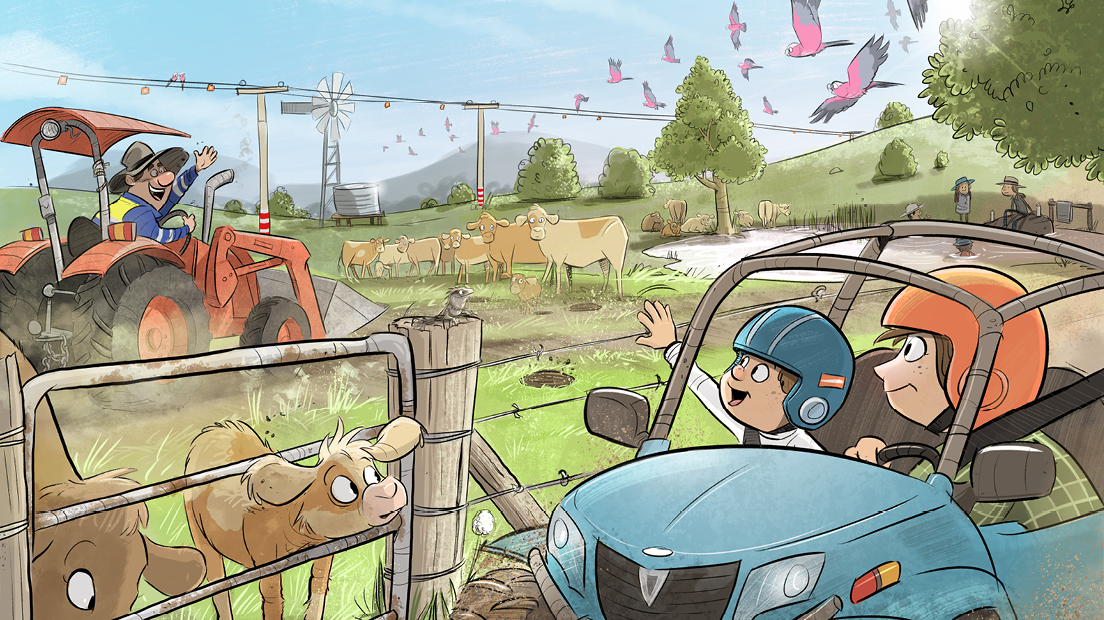13 September 2022. By AgForce Workforce and Safety Chair James Stinson.

There’s a common misconception among city folk that life on the farm is a carefree existence.
Sunny days full of fresh air and the joys of nature; sheep, cows and horses roaming the fields with farmer Tom (Dick or Harry) riding high on his tractor.
You only have to open a children’s book to see it in full technicolour glory.
But the statistics tell a different story – the farm is a dangerous place.
A new study reveals accidents involving vehicles, machinery dams, and tree felling are among the leading causes of death on properties across Australia – identifying 1584 fatalities (around 79 per year) between 2001 and 2020.
The findings, presented last month at the National Rural Health Alliance’s conference in Brisbane, found two thirds were work related, with injuries largely caused by accidents on quad bikes and utes, as well as machinery such as tractors and forklifts.
Farm structures, including dams and powerlines, were the cause of 11 per cent of fatal injuries, with environmental factors such as tree felling behind seven per cent.
The stark reality is that everyone who works on our farms needs to consider the intangible factors – fatigue, labour shortages, an aging workforce, the blurred lines between home and work – that can lead to workplace injuries and fatalities.
And while July’s Farm Safety Week might now seem like a long time ago, its messages are as relevant this week - and any week – as they were then.
Farm safety is something that AgForce takes extremely seriously, and it’s not just for large organisations but for the ‘mum and dad’ operations too.
We spend time making sure producers identify the risks on their farms and take steps to change what needs changing. As always, our Safety Policy is available online.
The latest figures acknowledge that 12 fewer farmers died on farms in 2021 compared to 2020 or 2019 - but 46 farmer deaths still makes for sobering reflection, and offers little comfort to the friends and loved ones left behind.
For sadly without a farmer, there is no farm.

